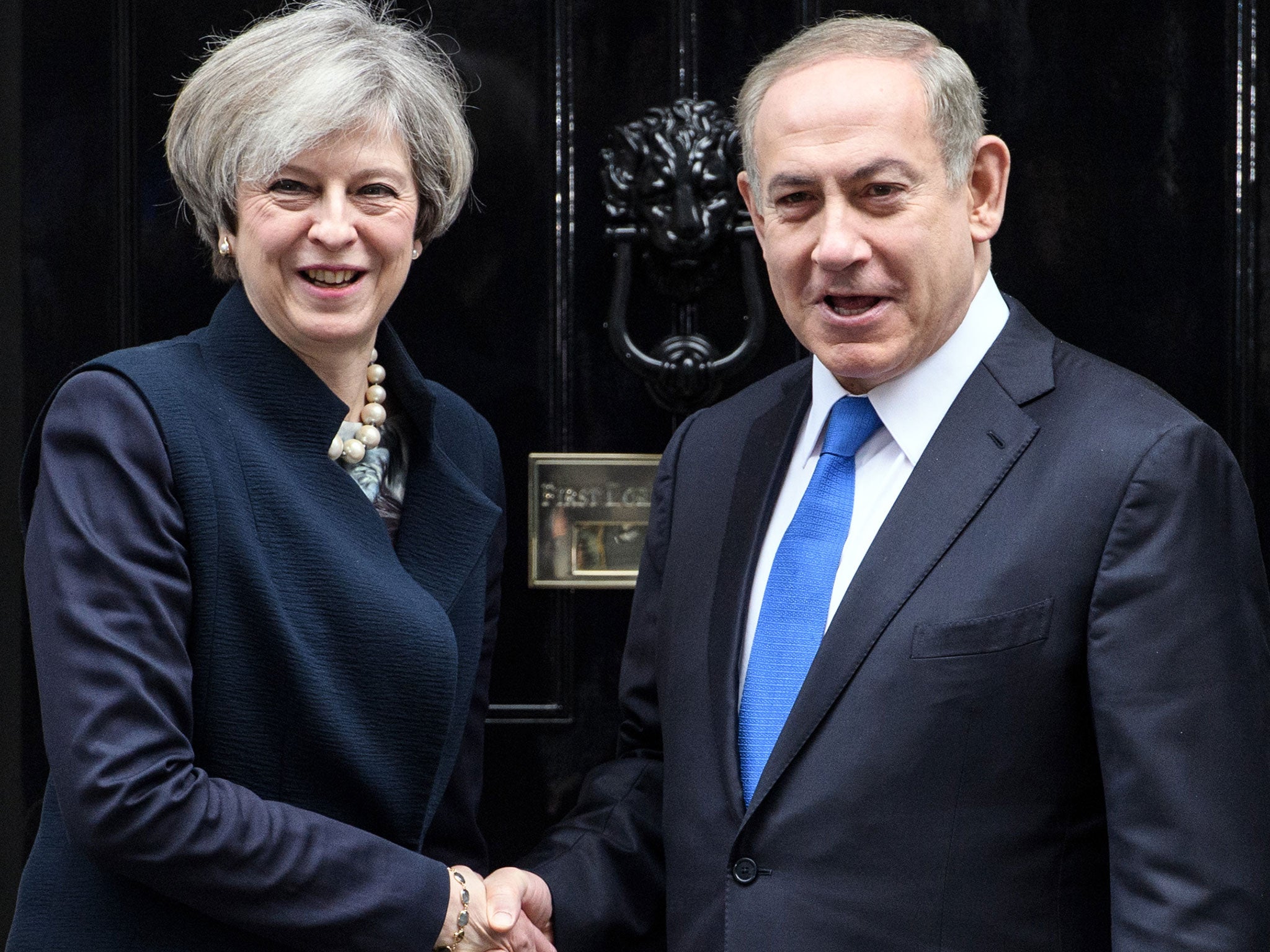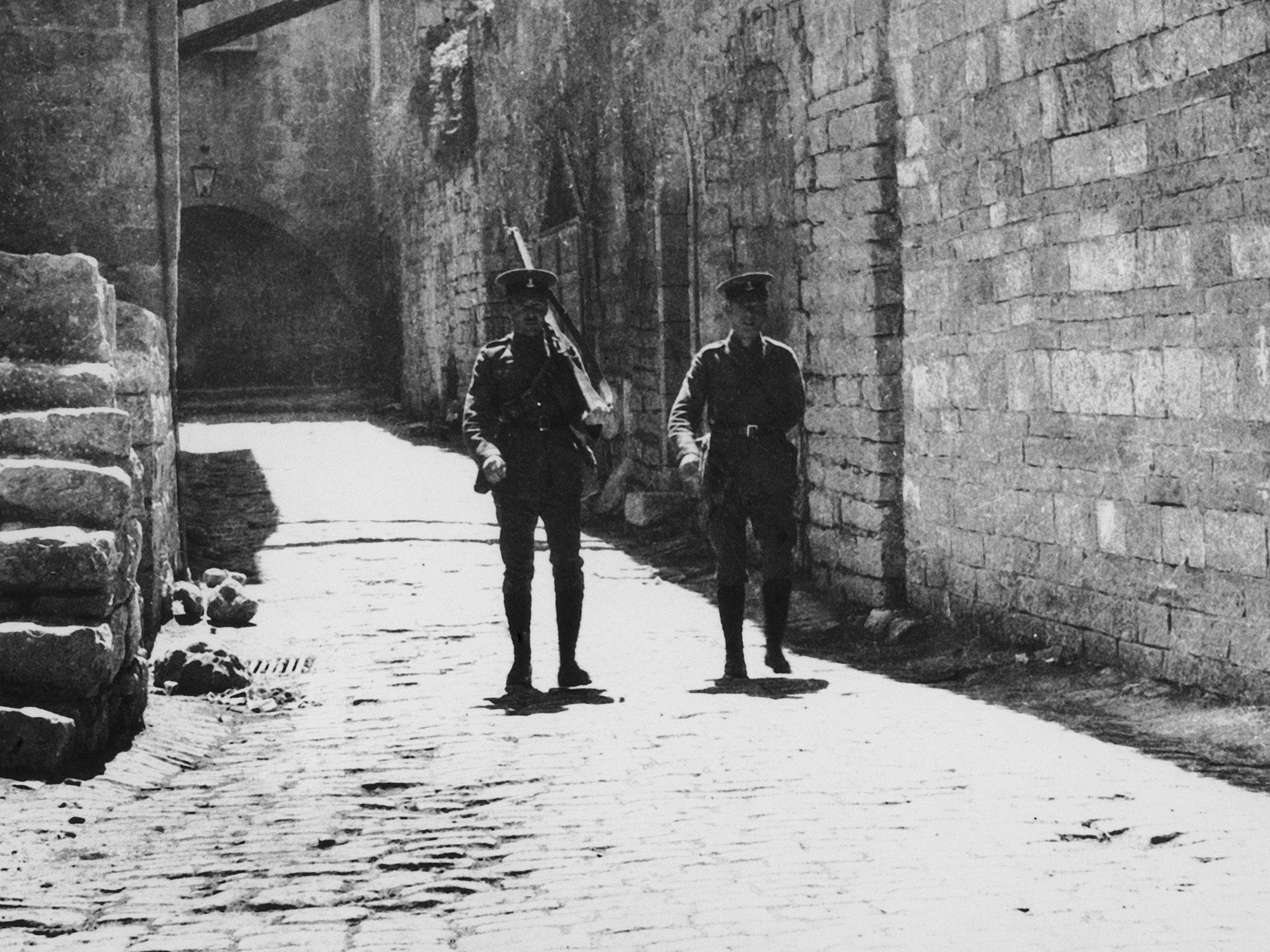UK refuses to apologise to Palestinians for Balfour Declaration and says it is 'proud of role in creating Israel'
British Government says it is ‘proud of our role in creating the State of Israel’

Palestinian leaders have vowed to sue the British Government after it refused to apologise for a 1917 declaration that paved the way for the creation of Israel.
Mahmoud Abbas had called for an apology in his address to the UN General Assembly in September, ahead of planned celebrations by British and Israeli officials to mark the centenary of the Balfour Declaration.
More than 13,500 people signed a petition calling for the Government to “openly apologise to the Palestinian people” over the letter, saying the UK’s colonial policy caused “mass displacement” and injustice.
The number of signatures failed to pass the benchmark for a parliamentary debate but the Government issued a formal response.

“The Balfour Declaration is an historic statement for which HMG does not intend to apologise,” it said.
“We are proud of our role in creating the State of Israel. The task now is to encourage moves towards peace.”
A spokesperson said the Declaration was written in a world of “competing imperial powers” as the First World War raged and Ottoman Empire diminished, adding: “In that context, establishing a homeland for the Jewish people in the land to which they had such strong historical and religious ties was the right and moral thing to do, particularly against the background of centuries of persecution.
“Of course, a full assessment of the Declaration and what followed from it can only be made by historians.”
The Government’s statement accepted that the Declaration “should have called for the protection of political rights of the non-Jewish communities in Palestine, particularly their right to self-determination” but said that lasting peace must now be established through a two-state solution.
It called for a “viable and sovereign Palestinian state” based on the 1967 borders complete with agreed land swaps, Jerusalem as the shared capital of both states, and an agreed settlement for refugees.

Manuel Hassassian, the Palestinian ambassador to the UK, said the response meant “the Queen and the Government of Britain will not apologise to the Palestinian people” and planned centenary events would go ahead.
He said that unless the position was reversed and the UK formally recognised the state of Palestine, a lawsuit would be pursued.
“This is the only condition upon which we can close this file permanently,” he told Voice of Palestine Radio on Tuesday.
The Balfour Declaration was a letter sent on 2 November 1917 from British Foreign Secretary Arthur James Balfour to Lionel Walter Rothschild, a leader of the British Jewish Community.
It said the government of the time favoured the establishment of a “national home for the Jewish people in Palestine”, as long as “nothing shall be done which may prejudice the civil and religious rights of existing non-Jewish communities in Palestine”.
The text was read as support for the Zionist movement and was later incorporated into a peace treaty with the Ottoman Empire and the British Mandate for Palestine, despite contradicting other agreements.
Palestinians have long condemned the document as a promise by Britain to hand over land that it did not own.
Israel declared independence in 1948 after the British Mandate expired and won the subsequent Arab-Israeli War, prompting significant demographic change in the region and exodus of more than 700,000 Palestinians.
Israel later captured the West Bank and East Jerusalem in the 1967 war, along with the Gaza Strip that is now controlled by the Hamas Islamist group.
The last round of Israeli-Palestinian peace talks collapsed in 2014, while the past year has seen an upsurge in violence seeing Israelis killed in stabbings and car attacks and more than 280 Palestinians – mostly attackers – killed by Israeli security forces.
There has also been an increase in tensions over the construction of Jewish settlements in the Occupied Palestinian Territories that are regarded as illegal under international law.
Theresa May has invited Israeli Prime Minister Benjamin Netanyahu to attend events commemorating the Balfour Declaration in November. Other commemorations are expected to take place in Israel during the year.
A spokesperson for the Foreign and Commonwealth Office told The Independent that it recognises “sensitivities” over the declaration and subsequent events in the Middle East, but that “the UK Government will be marking the centenary in an appropriate and balanced manner”.
“Our focus remains on encouraging the Israelis and Palestinians to take steps which bring them closer to peace,” he added.
“We continue to support the principle of a Jewish homeland and the modern state of Israel, just as we support the critical objective of a viable and sovereign Palestinian State.”
Join our commenting forum
Join thought-provoking conversations, follow other Independent readers and see their replies
Comments
Bookmark popover
Removed from bookmarks